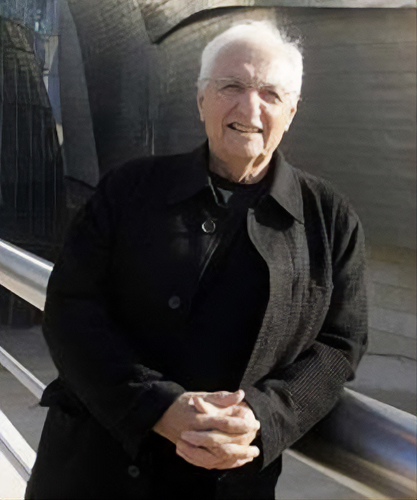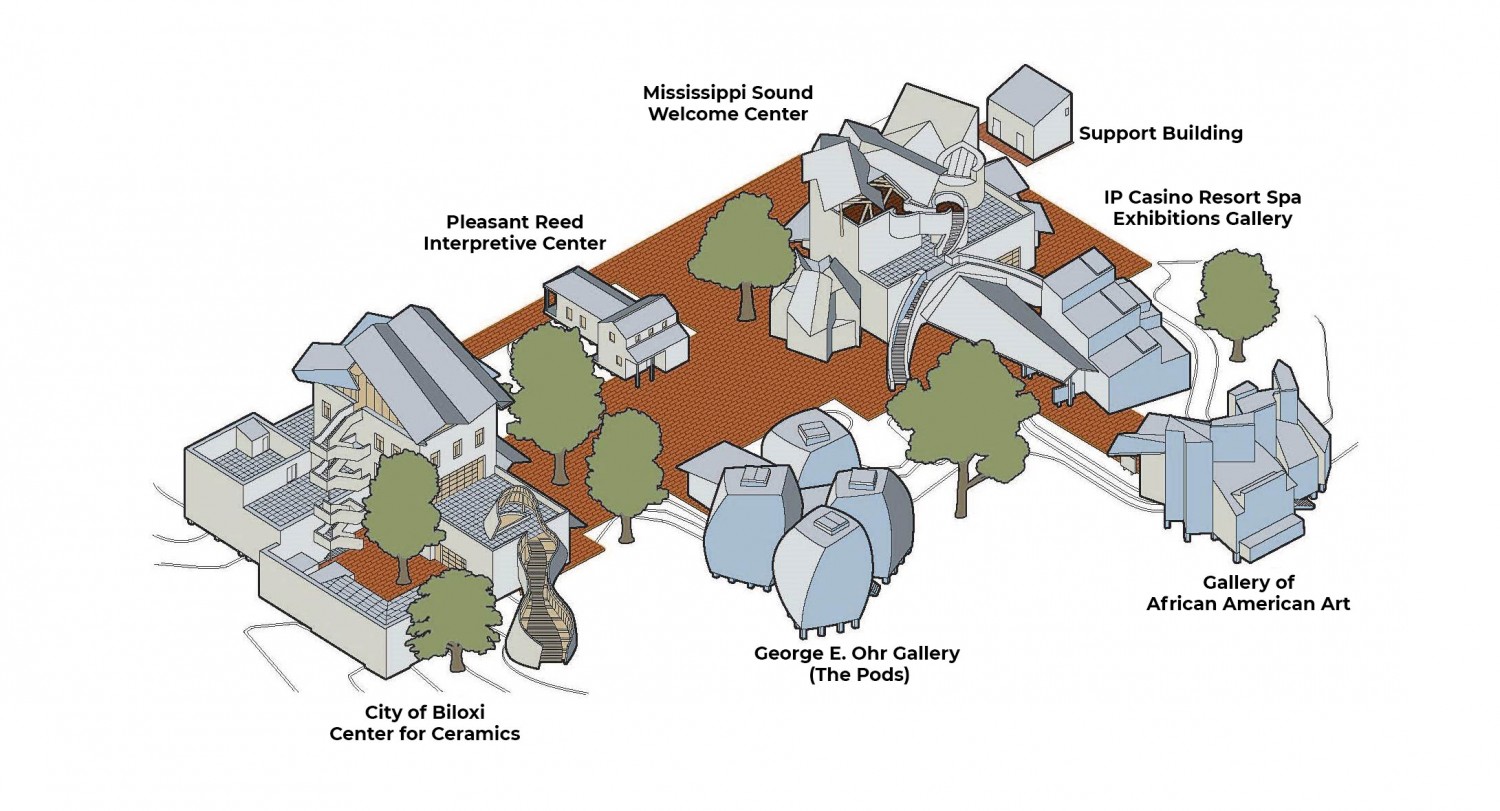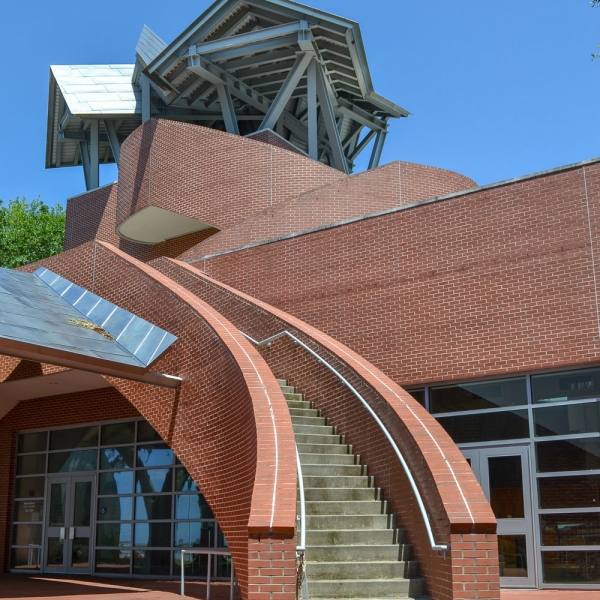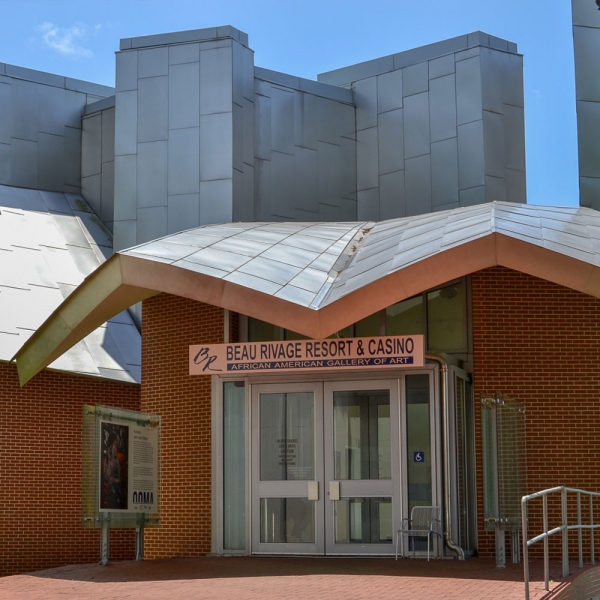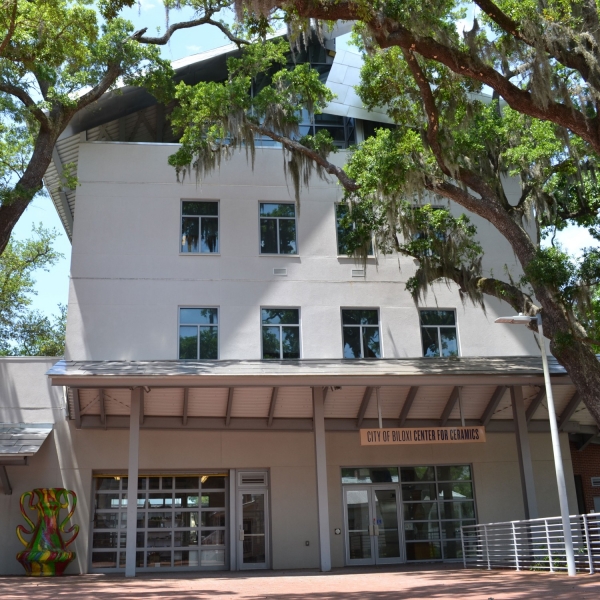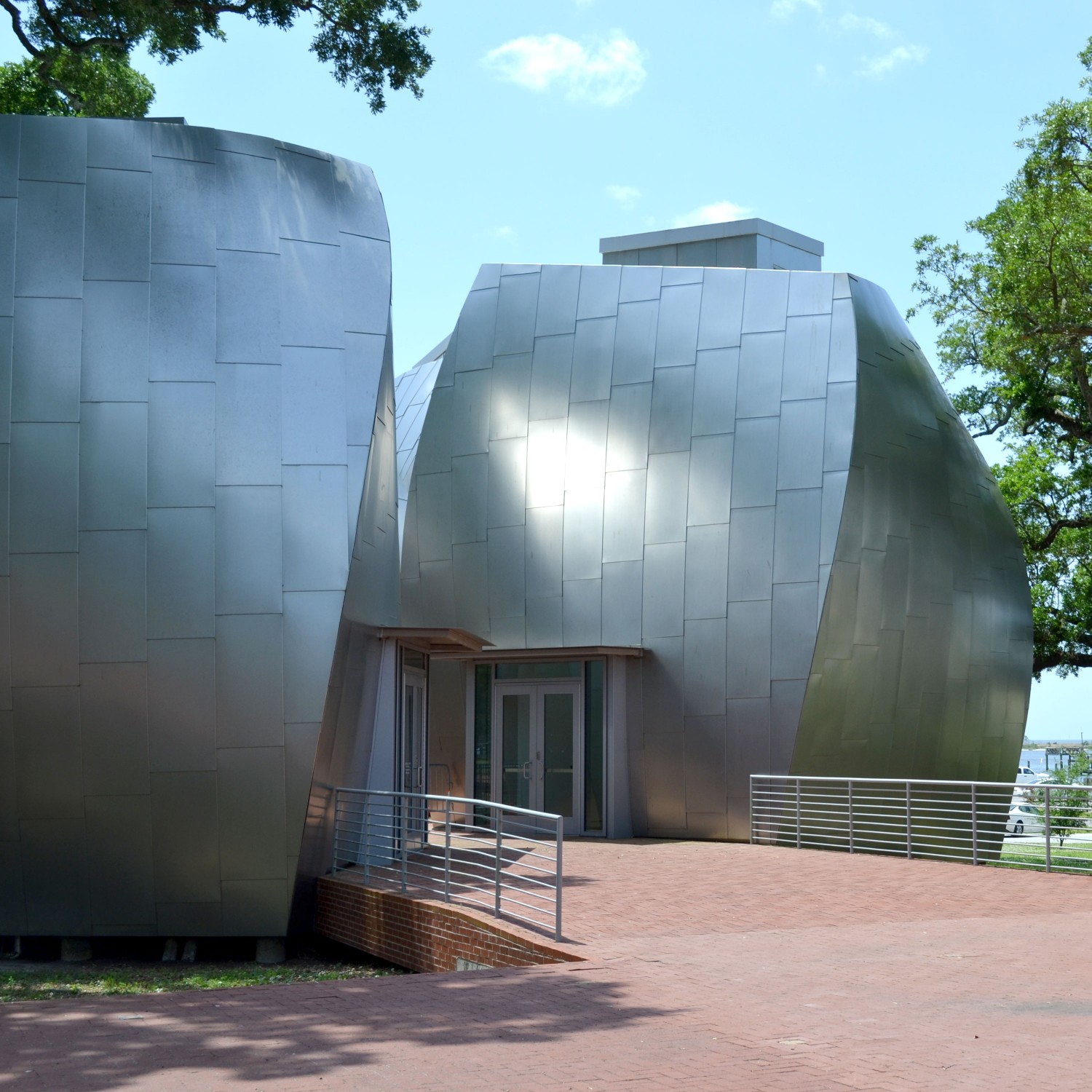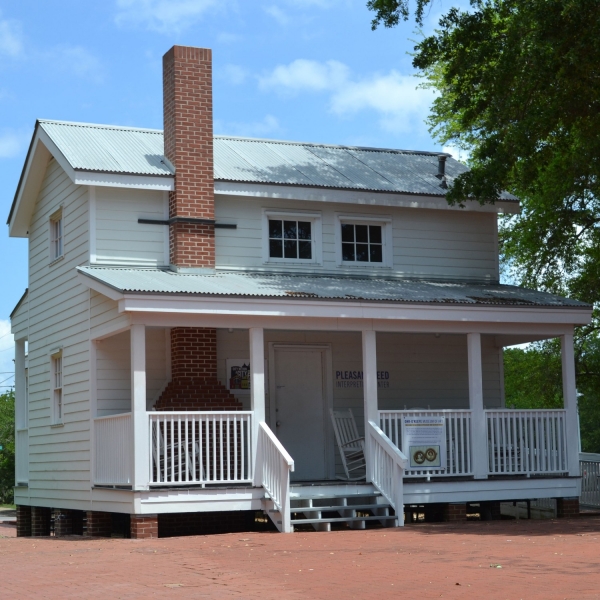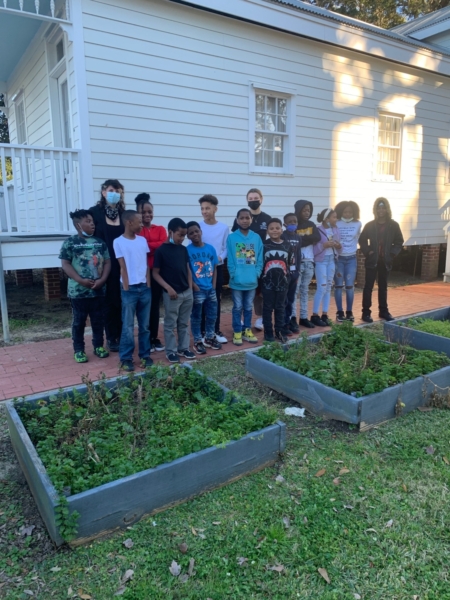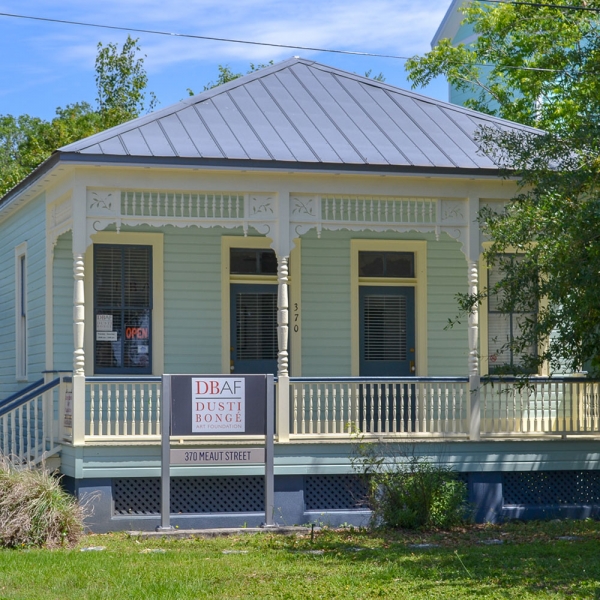Frank Gehry and the Ohr-O’Keefe Museum of Art
Frank Gehry is perhaps the most celebrated and best known architect of our time. His sculptural approach to building has created a highly personal architectural style characterized by dynamic forms and highly energized space. His work has resonance with a variety of architectural movements from California Funk, to Pop art inflections and Deconstruction. One of his first well know projects was his own Santa Monica house, which he stripped down and rebuilt incorporating common materials such as plyboard and chain-link fencing composed in an open deconstructivist style. In 1989 he won the famed Pritzker Prize. Since developing his distinctive dynamic sculptural approach to design, he has built innovative buildings across the world to great acclaim, including The Guggenheim Bilbao in Spain (1997), Walt Disney Concert Hall in his hometown of Los Angeles, and The Louis Vuitton Foundation in Paris (2014).
“People ask me if I’m an artist
or an architect. But I think
they’re the same.”– Frank Gehry
Discussions about the construction of the Ohr-O’Keefe Museum began in 1998. The project officially broke ground in 2003 but all the building progress was destroyed in 2005 when Hurricane Katrina left a casino barge resting against the African American Gallery. The Pleasant Reed Interpretive Center for African American History opened in 2003 and was reconstructed in 2009. The Mississippi Sound Welcome Center, African American and the IP Resort Casino and Spa Galleries first opened to the public in 2010. The City of Biloxi Center for Ceramics opened in 2012 and Pod Gallery One in 2014, followed by Pod Gallery Two in 2019. Pod Gallery Three opened late spring 2020. Pod Gallery Four will be finished thanks to a generous grant from the state of Mississippi in Spring 2024.
The Ohr O’Keefe campus was originally woven into a dense canopy of oak trees. The concept of a “dancing building,” first used for the Netherlands Office Building in Prague, was adapted for Biloxi, with the buildings Dancing With the Trees of this dramatic Gulf-front site.
Phase One
Phase Two
HISTORIC BUILDINGS
Community Art Garden
This project is funded in part by a grant from South Arts in partnership with the National Endowment for the Arts and the Mississippi Arts Commission.
AFTER THE STORM
This image of the Museum site following Hurricane Katrina, August 29th, 2005, shows the casino barge sitting on top of the Gallery of African American Art. To the left of our image, the Center for Ceramics stands relatively undamaged. The original Pleasant Reed House was destroyed by the surge, not the barge.

